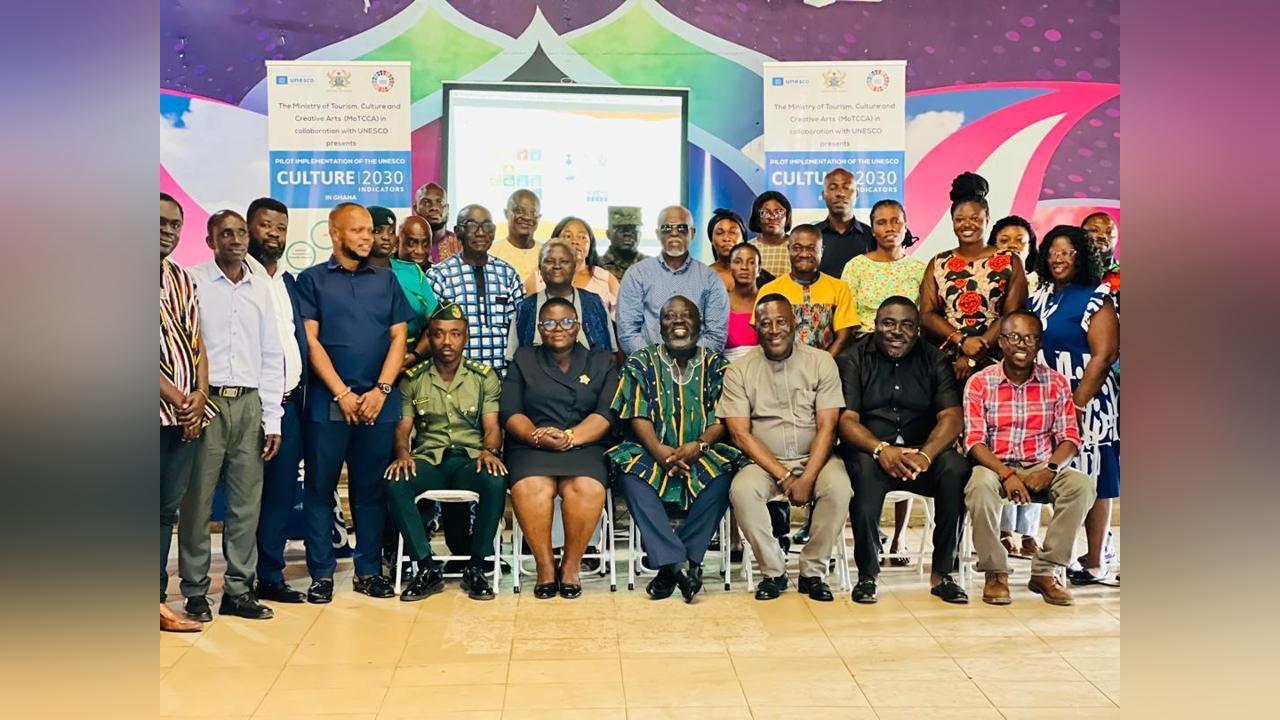Africa-Press – Ghana. The Ministry of Tourism, Culture and Creative Arts (MoTCCA) has held a two-day workshop in Kumasi to pilot the implementation of the United Nations Educational, Scientific, Cultural and Organisational (UNESCO) Culture 2030 Indicators project in Kumasi.
It was held in partnership with UNESCO and the Kumasi Metropolitan Assembly (KMA) since Kumasi has been selected for the implementation of the project.
The UNESCO Culture 2030 project is being funded by the European Union, under the, “Advancing Evidence-based Policies and Actions, and Supporting Policy making to enhance the contribution of creative sectors and industries to sustainable development,” project.
The workshop, attended by representatives from various departments, agencies and organisations in the KMA, emphasized the importance of integrating culture into sustainable development plans and enhanced capacity building in culture-related data collection and analysis.
Dr Richard Fio Commey, the National Expert for the UNESCO Culture 2030 Indicators, said the project aimed to measure and observe the contributions of culture to the 2030 Agenda for Sustainable Development at both the national and urban levels, hence the selection of Kumasi and Accra for the pilot implementation of the project in the urban and national levels respectively.
Dr Commey indicated that, the workshop, which also aimed at introducing and educating stakeholders in Kumasi on the UNESCO Culture 2030 Indicators project followed a successful launch in Accra.
Dr Daniel Appiah-Adjei, the Kumasi Local Expert for the UNESCO Culture 2030 Indicators, noted that the project provided a comprehensive framework of 22 indicators.
These indicators, he said, were grouped under four dimensions, including Environment and Resilience, Prosperity and Livelihoods, Knowledge and Skills, and Inclusion and Participation.
Dr Appiah-Adjei acknowledged the important role culture played in realising SDGs Four (Quality Education), Five (Gender Equality), Eight (Decent Work and Economic Growth), 11 (Sustainable Cities and Communities and 16 (Peace, Justice and Strong Institutions).
He emphasized the need to measure and track the contributions of culture to sustainable development through the indicator project to promote the integration of culture in policy making and development plans.
Dr Appiah-Adjei urged stakeholders to cooperate with a team of data analysts under the project, who would visit their organisations to collate administrative data.
For More News And Analysis About Ghana Follow Africa-Press







